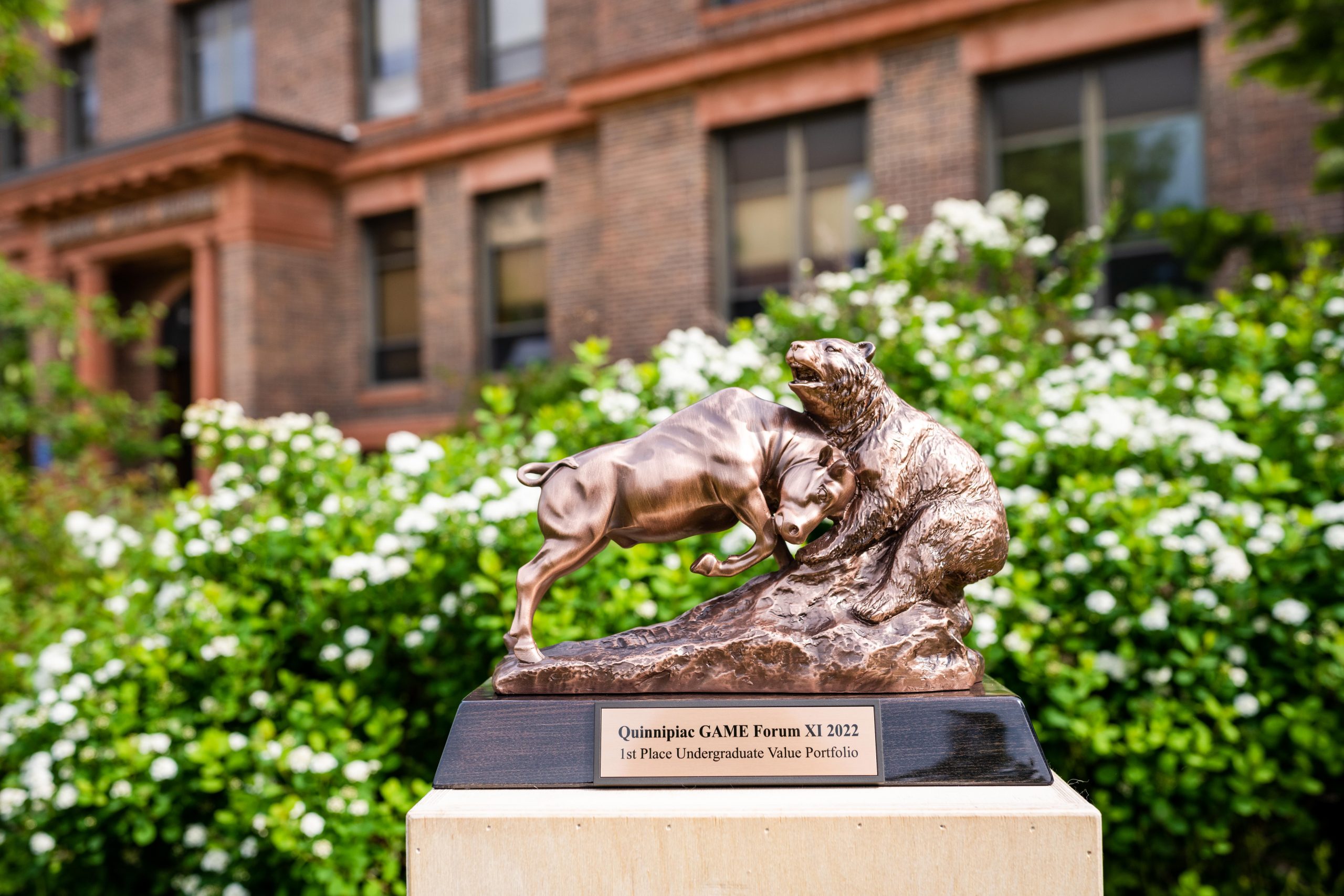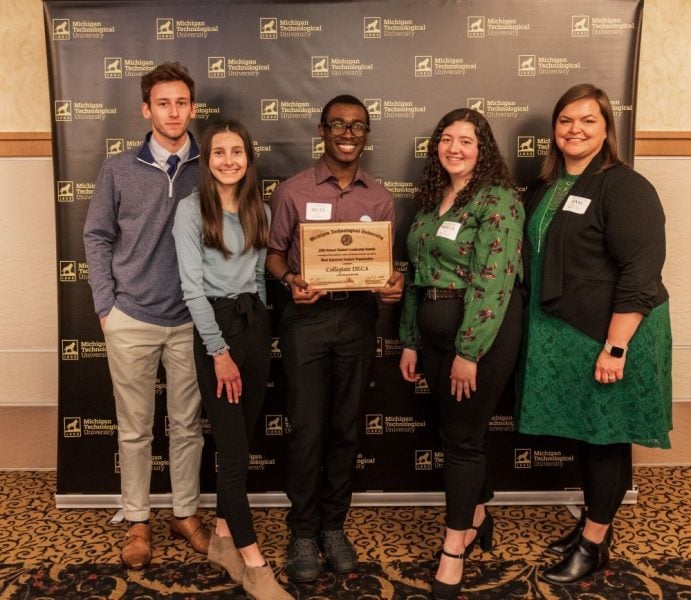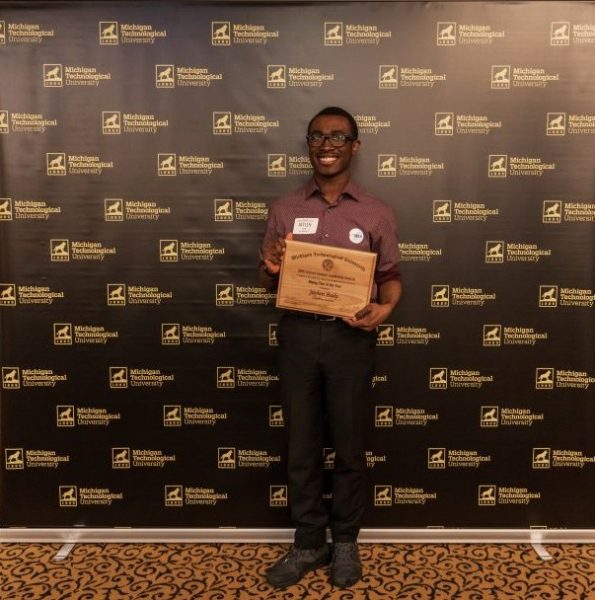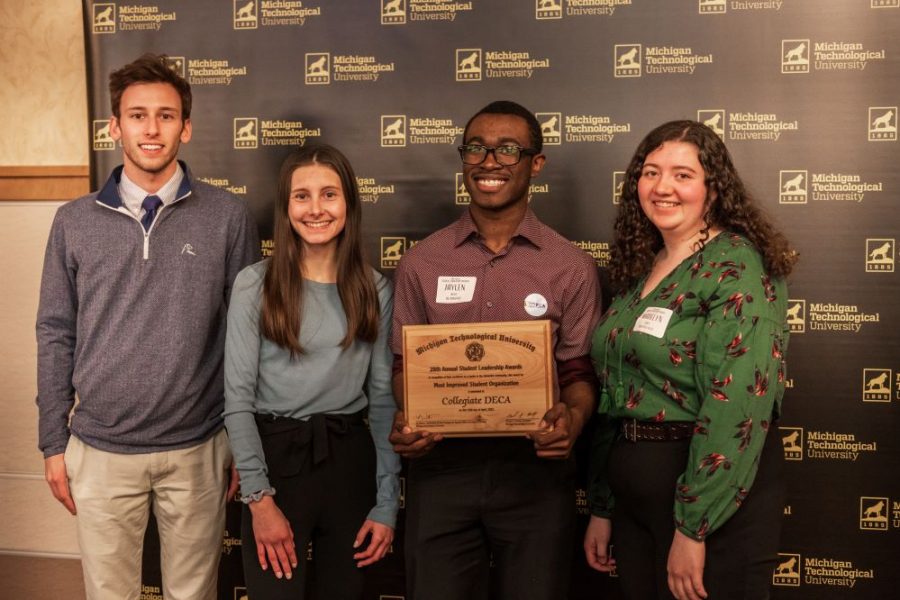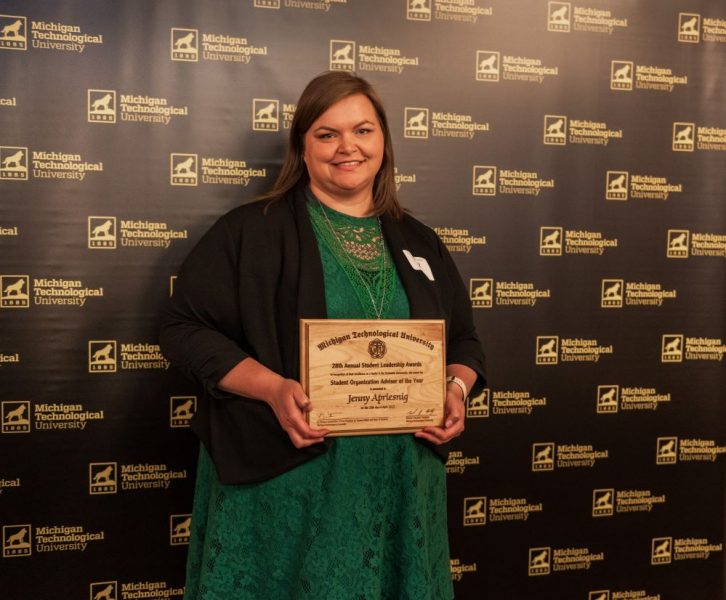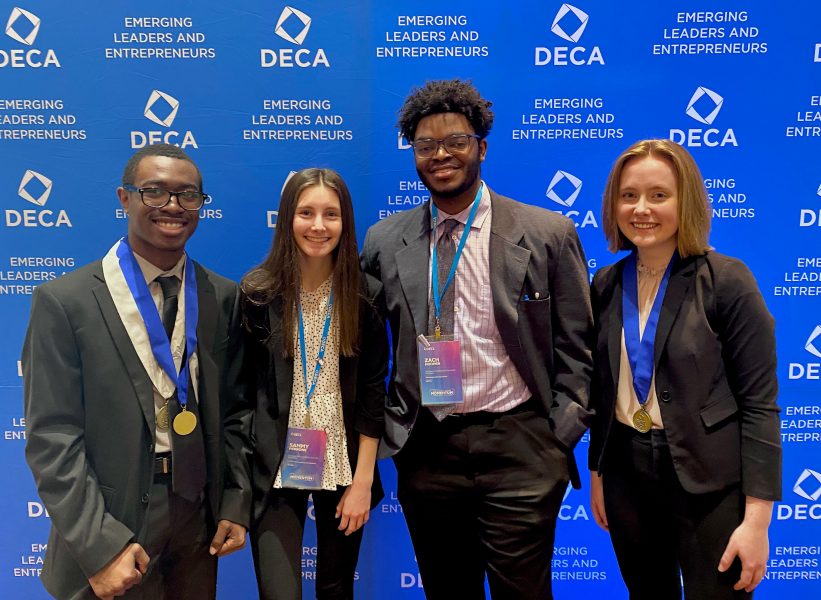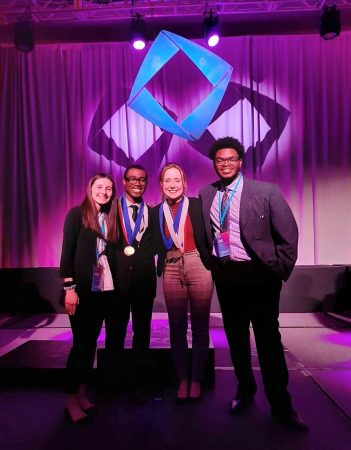
Aidan Holley, 18, has won the Parade of Nations essay contest on multiculturalism. He will receive a $1,000 scholarship to Michigan Tech, where he will study engineering management starting this fall.
Multiculturalism is a fact of life for Holley, who lives in Baraga, Michigan. “I have lived in the Keweenaw Bay Indian Community most of my life,” Holley explains. “Half of my graduating class at Baraga High School was tribal.”
The Parade of Nations essay contest was open to high school seniors who plan to go to Michigan Tech. It asked two questions:
- What does multiculturalism mean to you?
- Why does it matter to you, to your community, to our country, to the world?
In his essay, Holley writes: “In my community, Baraga County, this concept is especially important to understand. The Keweenaw Bay Indian Community lies within the area, and Baraga’s culture can be divided mainly into two different groups: Yoopers with Finland in their blood and Native Americans who have been on this land for centuries. For the most part, we get along well together. But there are times that it can get problematic, because multiculturalism is a mostly unknown and foreign concept for much of our populations. If both groups put multiculturalism into effect for Baraga, it would create a more welcoming environment for either group to be more open to each other, spreading even more culture to each other without the worries of being slandered.”
As for the importance of multiculturalism to the country and the world, Holley says: “My definition of multiculturalism is to have a better understanding of the people who surround us in our world. To me, it is really important to be able to harness this major ability, as it helps connect people from multiple different regions of the globe. For example, in a workplace, having workers who are American, Italian, Kenyan, Russian, Japanese, and/or Brazilian in the same area helps create diversity, which helps each culture to understand the other. Using this example all over the world would create an alliance of hundreds of different backgrounds and traditions and unite them together into one large hub that anyone can learn from.”
Aidan goes on to say: “Our country is another good example of why multiculturalism is important to understand. It does happen in some areas of the United States, but only on certain occasions and in certain areas of the country. If it happened all over our society, it would create a much more accepting environment to be able to share whatever culture someone belongs to with a different culture.”
The valedictorian of his class at Baraga High, Holley has won more than 20 scholarships. He was inducted into the National Honor Society in 10th grade. He also served on the student council.
Both Parade of Nations contest winners this year were from Baraga. Chiara Rapacci, an exchange student from Italy, won the logo design contest. Holley is not surprised. “It reflects on the teachers at Baraga High School,” he says. “I can’t say enough good about the teachers there.”
